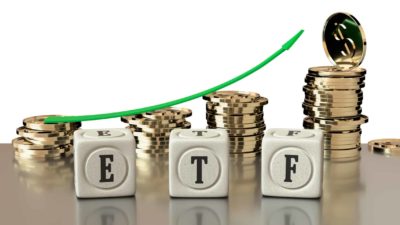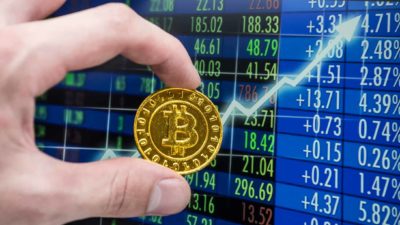The Bitcoin (CRYPTO: BTC) price plunged towards the end of the week as the market was gripped by new fears that interest rates would rise soon.
The flagship cryptocurrency slumped on Thursday following the release of minutes from the US Federal Reserve's meeting before falling further on Friday. By the time the ASX closed on Friday, Bitcoin was down around 39% from its November peak.
But believe it or not, 2021 was actually a pretty good year for Bitcoin holders. During the calendar year, the value of Bitcoin rose 71.25%.
That's a sensational return by any asset class' measure.
Volatile journey, but still a nice return for 2021
DeVere Group chief executive Nigel Green said during the week that investors with a long-term horizon should ignore the temporary dips and crypto critics.
"For the third consecutive year, Bitcoin has outperformed both stocks and gold."
He called the Thursday sell-off a "knee-jerk" reaction to the minutes from the US Federal Reserve meeting.
"I believe that we will see Bitcoin robustly rebound as the dust settles," he said.
"This is because Bitcoin and other digital currencies are widely regarded as a shield against inflation mainly due to its limited supply, which is not influenced by its price."
Bitcoin is limited to a hard cap of 21 million coins, which is programmed into the software.
The value of Bitcoin ended 2021 at $63,594. During the year it smashed the $90,000 barrier before making a descent in the last 7 weeks.
Green reminded punters that markets, whether they be shares or cryptos, "never move in a straight line" and that Bitcoin would "revert to an upward trajectory".
"For people who are serious about building long-term wealth, this temporary volatility will be viewed as most other bouts of market turbulence: a buying opportunity."
2021 was the year when Bitcoin hit the mainstream
The year 2021 will be viewed as the time when institutional investors finally warmed to Bitcoin.
Large companies like Tesla Inc (NASDAQ: TSLA) and MicroStrategy Incorporated (NASDAQ: MSTR) publicly revealed that some of their asset holdings were in cryptocurrency.
Then, both abroad and in Australia, exchange-traded funds (ETFs) that tracked the fortunes of the crypto industry were established. This allowed stock investors to nab a piece of the action without directly purchasing crypto.
El Salvador even became the first country to accept Bitcoin as legal tender. Experts are predicting other lower-income nations will follow in 2022.
"Like many major corporations, financial institutions, governments, prestigious universities, and household-name investing legends, I'm confident that digital currencies are the inevitable future of money," said Green.
"In our increasingly tech-driven, globalised world, it makes sense to hold digital, borderless, decentralised currencies."









